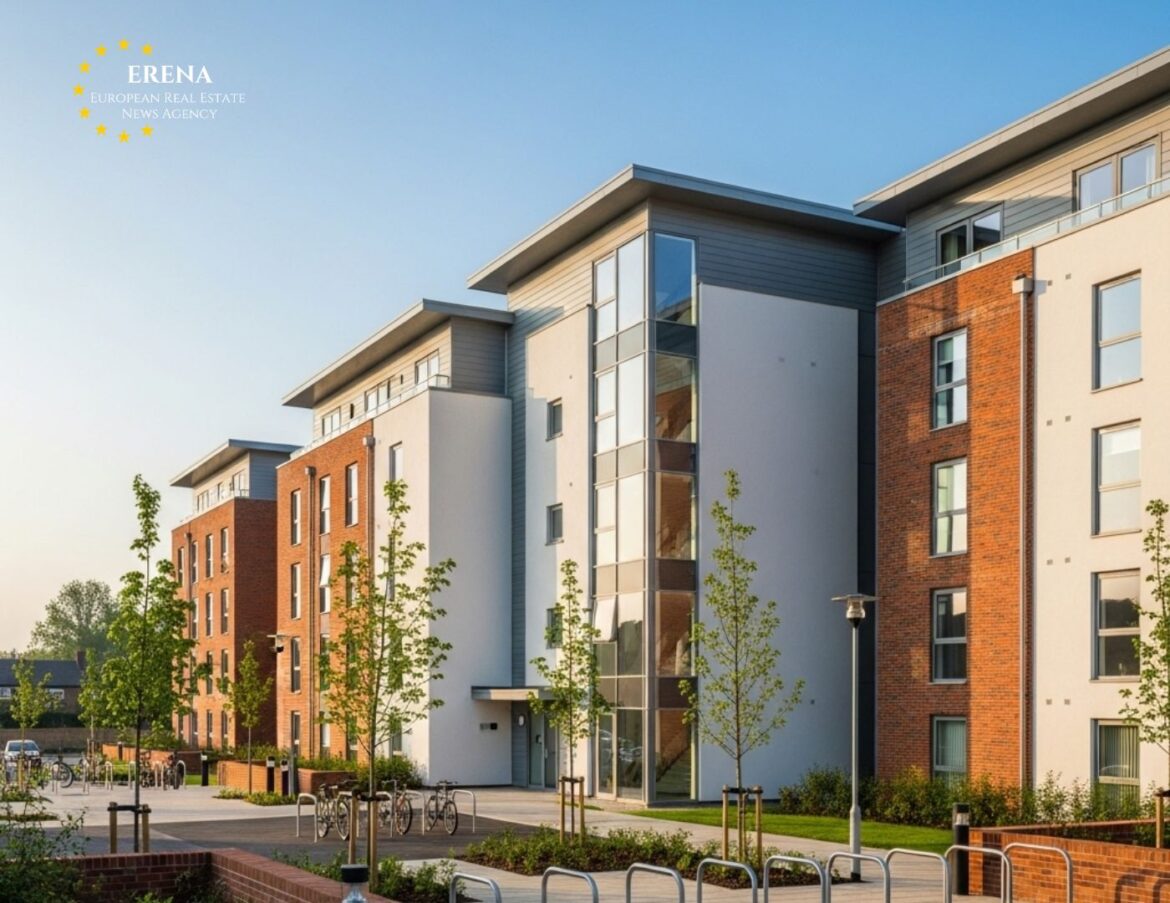Maslow Capital, a UK-based specialist in real estate development finance, has announced a major investment of €590 million (approximately £500 million) to expand the country’s student housing sector. This strategic move underscores growing institutional interest in a segment that offers steady demand, reliable returns, and rising relevance amid the broader housing crisis affecting students across the UK.
A New Boost to the Purpose-Built Student Accommodation Sector
The Purpose-Built Student Accommodation (PBSA) market has become one of the most dynamic areas of UK real estate. Analysts predict that demand for dedicated student housing will grow by 20–25% by 2026, driven by increasing numbers of domestic and international students — and a chronic shortage of supply.
Maslow Capital, long active in financing residential and commercial real estate developments, is now focusing heavily on student accommodation. According to the company, its investment will support both new developments and the refurbishment of existing assets to meet modern standards.
Geographic Focus and Investment Strategy
Maslow’s funding will be distributed across key university cities, including Manchester, Birmingham, Leeds, Bristol, and Glasgow — locations where demand far outstrips supply. Many universities have struggled to house a growing student population, especially those from overseas who have returned in large numbers post-pandemic.
A significant portion of the capital will support sustainability-focused projects. ESG-compliant designs, energy efficiency, and environmentally friendly construction are central to Maslow’s approach, appealing to institutional co-investors and reflecting the market’s long-term priorities.
Students as Reliable Tenants
Maslow’s investment reflects a broader trend: students, especially from abroad, are seen as a dependable tenant base. According to Knight Frank, average occupancy rates in UK student accommodation exceed 95%, and rental prices rose by 7–9% over the past year.
With consistent demand from regions such as Asia, the Middle East, and continental Europe, student housing continues to offer stability even amid broader housing market volatility. The rise in postgraduate and master’s programs also smooths out seasonal variations, ensuring year-round demand.
Rising Values and Strong Investment Returns
The value of PBSA assets in the UK has climbed nearly 30% since 2018. Even during economic downturns, including the COVID-19 pandemic, the sector has shown resilience.
JLL reports that student housing attracted over £7.5 billion in investment during 2024 — a five-year high. Maslow’s entry into this space confirms the sector’s growing strategic importance, especially as demand is expected to surge further in the coming years.
Local Economic Impact and Challenges
Student housing projects tend to generate strong economic spillover effects — creating jobs, stimulating local services, and improving urban infrastructure. However, some cities are raising concerns about the impact of PBSA on the availability of regular housing for residents.
Cities like Bristol and Leeds are already considering tighter regulations to ensure new developments balance the needs of students with those of permanent residents, addressing fears of neighborhood saturation.
Maslow’s Commitment to ESG Principles
Maslow Capital’s approach emphasizes long-term sustainability. New developments will feature solar panels, rainwater harvesting, high-efficiency insulation, and community-driven design elements such as coworking spaces, study lounges, and bike storage.
The firm views ESG not just as a compliance measure, but as a key to long-term value creation. As regulatory frameworks tighten, sustainability is becoming a competitive advantage for developers and investors alike.
Competitive Landscape
Maslow enters the student housing market amid intensifying competition. Key players include Unite Students, GSA, Greystar, Brookfield, and various pension and sovereign wealth funds. However, Maslow differentiates itself with flexible structuring and a willingness to work with both large developers and mid-market operators.
Its experience in deal structuring allows the firm to tailor financing for a wide range of projects, from high-yield urban infill developments to mixed-use regeneration schemes near campuses.
Looking Ahead: 2025–2026 Forecasts
By 2026, annual investment in UK student housing is expected to exceed €10 billion. Key growth drivers include:
- Continued rise in international student enrollments
- Shortage of university-owned accommodation
- Increasing demand for high-quality, comfortable living spaces
- Growing importance of ESG-compliant real estate
Maslow Capital plans to offer a variety of financing tools — including bridge-to-completion loans and long-term debt — to serve developers operating at different stages of the project lifecycle. This flexible model positions the firm to scale quickly in a fast-evolving market.
Conclusion: Growth and Capital Follow Opportunity
Maslow’s €590 million commitment is a strong signal that the UK student housing sector remains one of the most attractive destinations for institutional capital. Amid growing concerns about affordability, regulatory uncertainty, and a strained rental market, PBSA stands out as a sector offering predictable returns and positive social impact.
As Maslow strengthens its presence in this space, it is also helping to close the housing gap for the next generation of students — building not just infrastructure, but the foundation for academic and economic growth across the UK.

